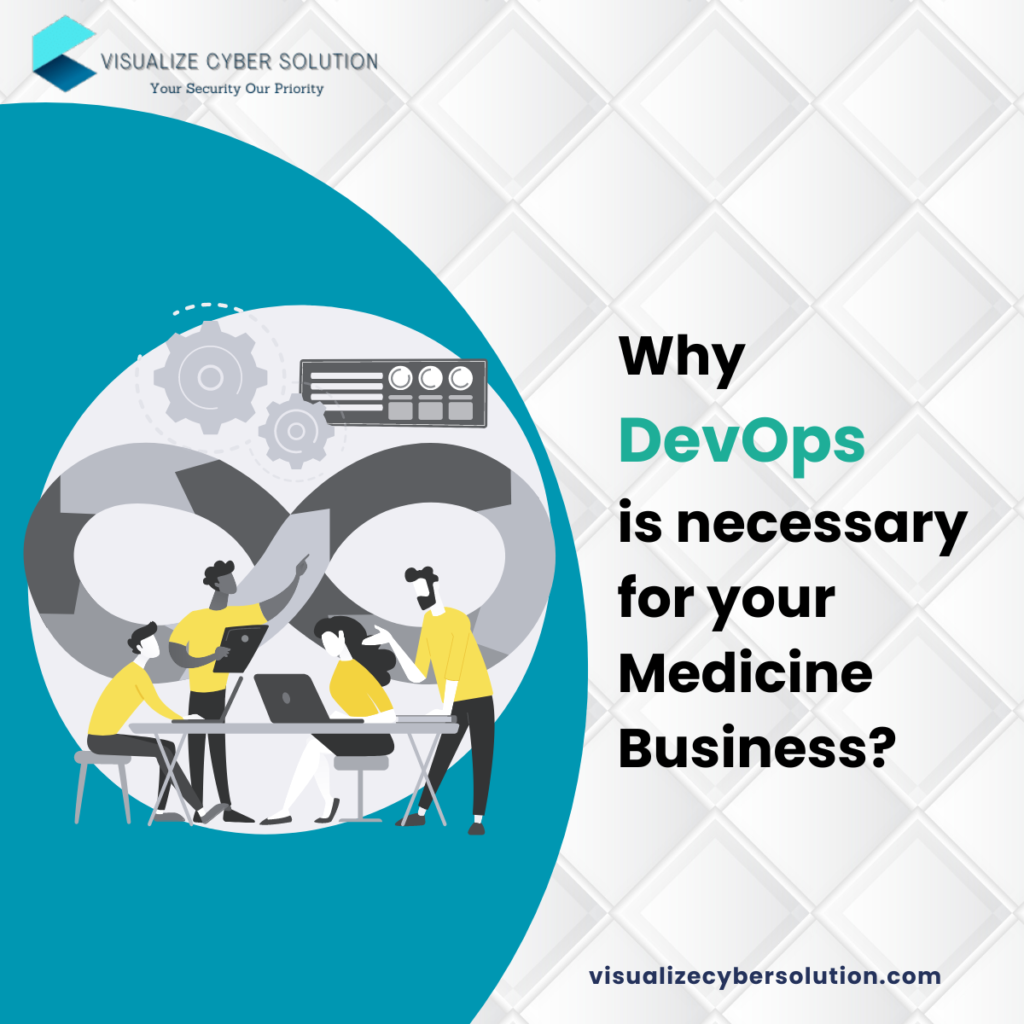
Revolutionizing Healthcare: The Essential Role of DevOps by Visualize Cyber Solutions
In the era of digital health, where patient care, innovation, and operational efficiency are paramount, DevOps has emerged as a transformative approach that is reshaping the medical industry. DevOps practices are driving medical businesses to enhance collaboration, streamline operations, and provide the best possible patient experiences. In this blog, we’ll explore why DevOps is indispensable for medical businesses and how it’s shaping the future of healthcare.
Transforming Healthcare through DevOps
Healthcare organizations are undergoing a digital transformation, embracing technology to provide better patient care and optimize operational processes. DevOps practices offer a systematic and efficient approach to address these challenges, fostering innovation, improving efficiency, and ensuring seamless patient experiences.
1. Accelerated Innovation
DevOps emphasizes continuous integration, continuous delivery (CI/CD), and automation. This approach accelerates the development of new healthcare technologies, from patient management systems to telemedicine platforms.
2. Seamless Collaboration
DevOps bridges the gap between traditionally siloed teams in healthcare, such as medical practitioners and IT professionals. Collaboration between these teams ensures that patient care and technological implementation are aligned for optimal outcomes.
3. Efficient Application Deployment
Healthcare apps and software are critical to patient care and operational efficiency. DevOps practices ensure that these applications are deployed quickly, with fewer errors, and can be updated seamlessly to provide the latest features and security patches.
4. Enhanced Patient Care
DevOps practices enable the development of patient-centric platforms that facilitate remote consultations, appointment scheduling, and patient data management. This enhances patient engagement and empowers individuals to take an active role in their health.
5. Scalability and Flexibility
Healthcare organizations often experience fluctuations in patient loads. DevOps allows for scalable infrastructure and application architecture, ensuring that healthcare systems can handle increased demand without disruption.
6. Continuous Monitoring
DevOps practices include real-time monitoring of applications and systems. This proactive approach ensures that any issues in patient management, data security, or operational processes are detected and resolved swiftly.
7. Regulatory Compliance
The healthcare industry is subject to strict regulations, such as HIPAA in the United States. DevOps practices can include security and compliance checks, ensuring that applications and systems meet the required standards.
In conclusion, DevOps is reshaping the healthcare industry by fostering collaboration, accelerating innovation, and promoting operational excellence. From accelerated innovation to enhanced patient care and seamless collaboration, DevOps empowers medical businesses to excel in an era of technological advancement. By embracing DevOps practices, healthcare organizations can optimize operations, drive innovation, and contribute to the transformation of patient care in the digital age.
#HealthTech #DevOpsInHealthcare #DigitalHealth #PatientCare #InnovationInHealthcare #OperationalEfficiency #HealthcareCollaboration #HealthcareAutomation #VisualizeCyberSolutions #LifeatVCS


